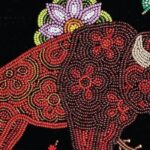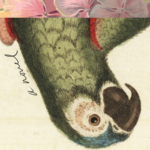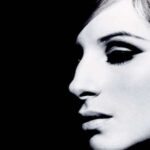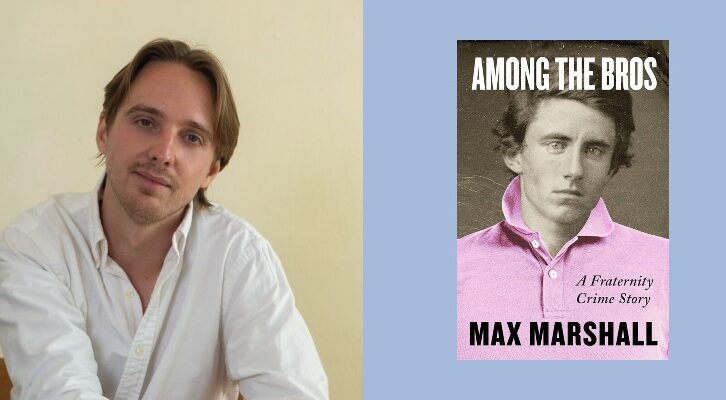Amanda Montei on Seven Novels That Explore Consent and Coercion
The Author of Touched Out Recommends J.M. Coetzee, Kathy Acker, and More
When I was in college, a man cornered me in my apartment after getting me drunk. He tried to have sex with me, relentlessly, until finally I found a way to hide in the bathroom, rendering myself both unavailable and abject, so that he would leave. It was an experience that felt both ordinary and cataclysmic, one that reverberated through my adult life for many years to come. How could I describe what had happened back there? How could I capture the banality of my disgust and fear, along with the violence of knowing what would have happened if I had fought, or if I had acquiesced to what he wanted?
I write about this experience in my new book, Touched Out: Motherhood, Misogyny, Consent, and Control, but I have been trying to find the language for that experience for many years. In writing the book, I often found myself up against the edge of the kinds of violation for which we have a name. We have so few terms to describe how women are wronged by men—harassment, assault, rape, attempted rape, coercion. I don’t favor the phrase “gray area” experiences, which is too indecisive, too uncertain. The legal stakes are also too high for those who come forward about abuse to call these experiences “gray.” But culturally, politically, and legally, we often lack the terms to capture what it feels like to live as a woman in a misogynist culture that sees our bodies as disposable, and in which having one’s body taken and used has become so commonplace.
This reading list features seven novels that deal with questions of consent and coercion. Some are grim and dystopian; some are campus novels that consider the power of age and status; others depict the slow and even glittering violence of having one’s identity, and one’s body, shaped by a culture that reduces women’s bodies to their ability to provide sexual pleasure to men, or to reproduce. As I have been, the characters in these books are sometimes at a loss at times for the words needed to describe what others have done to them. This can make the pain they feel confounding, alienating, shameful, but it is no less real, or true.
Many of these books also explore, as mine does, how the institution of motherhood shapes who and what we believe women’s bodies are for, and how such beliefs provide a distorted rationale for the many ways women’s bodies are exploited in a patriarchal culture. All these books offer new ways of understanding what it’s like to live in a culture of male control, showing how narrative can be a tool for expanding the language we have to describe women’s pain, as well as for resistance.
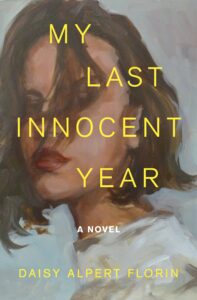
Daisy Alpert Florin, My Last Innocent Year
Florin’s debut novel is set on a university campus, supposed paragon of liberal ideals, and follows the aftermath one young college student feels after a fellow student abruptly and inelegantly has sex with her without asking for consent. The novel powerfully explores the fear and dissociation that arises in these scenarios, and the trouble young women have explaining the violation they feel when neither “rape” nor “nothing” seem to capture what’s been done to them.

J.M. Coetzee, Disgrace
I write about one scene from this novel in my book, Touched Out. In the scene, a student, Melanie, “moves of her own accord” during a sexual experience with an older male professor, “but not quite of her own volition,” as philosopher of misogyny Kate Manne notes in her book, Entitled. The scene, referred to by the male professor as “not rape, not quite” shows how, in Manne’s words, a woman can be “cast into a cultural script in which a man’s sexual desire has outsize ethical importance,” how a lack of agency can lead her into unwanted sex, and how, in the aftermath of such a violation, she may even feel obligated to protect the man who has mistreated her.

Allie Rowbottom, Aesthetica
An utterly propulsive narrative about one women’s slow descent into the world of social media and plastic surgery. Like my own book, this novel explores the desire many women have to remove the marks misogynist standards have made on their body—in this case through a surgery that reverses previous cosmetic procedures—alongside a nuanced exploration of assault.
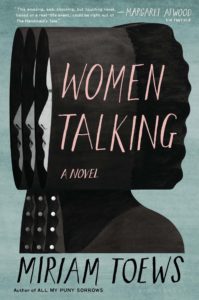
Miriam Toews, Women Talking
Toews’ novel opens with a note about “the wild female imagination”—something men weaponize to silence women when they come forward about abuse, but also a weapon that women themselves can wield to survive in a world that disavows their reality. I love how this book circles around the limited options women feel they have available in the face of violence—as if the only choices are to fight or flee—and how it highlights the power of community and public speech to move beyond those limits.
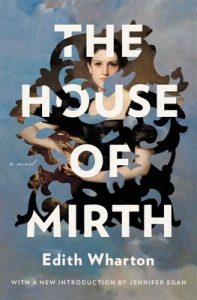
Edith Wharton, The House of Mirth
A classic exploration of Lily Bart’s loss of self to New York high society by a classic American writer. The close encounter with rape in this novel is often underexplored, but the scene illustrates well the economics of sex, and how women often feel compelled to let their bodies be used in exchange for other forms of power—and how this can get turned against them when public perception mistakes male violence for feminine indecency.
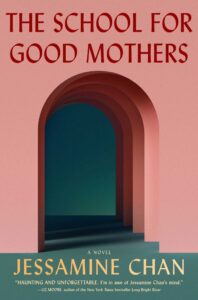
Jessamine Chan, The School for Good Mothers
Chan’s eerily familiar dystopian world imagines a society in which bad mothers are sent away to a school that will, supposedly, make them good. Chan’s first-generation Chinese-American protagonist, Frida Liu, who is eighteen months postpartum and struggling with little sleep, leaves her child alone at home for a few hours, which leads authorities to sentence Frida to a year at the school, alongside other mothers who have committed a range of offenses, from coddling their children to throwing them into pits. A complex portrayal of state control that begs us to reconsider the unevenly distributed standards we have for mothers.
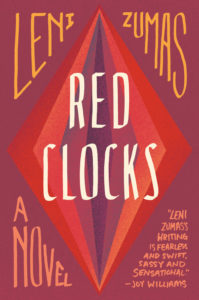
Leni Zumas, Red Clocks
Another innovative dystopian world in the vein of The Handmaid’s Tale, Zumas explores an era not unlike our own, in which abortion is illegal and embryos have full personhood under the law. The book explores the question of who and what, in such a world, is a woman’s body for?
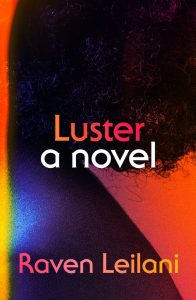
Raven Leilani, Luster
This exploration of power, race, and pleasure follows a young woman in a relationship with a married man. It’s a searing and funny exploration of desire, choice, race, and how we understand what we want, much less who that makes us.
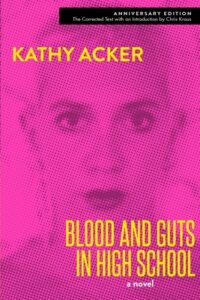
Kathy Acker, Blood and Guts in High School
An experimental, genre-defying, parodic, smutty exploration of empire and love by a revolutionary queer writer. This wild novel explores patriarchal violence in all its forms, from the kind that is wielded in history and intellectual thought, to the kinds caused by The Father. Includes illustrations that are NSFW.
_______________________________________________

Touched Out by Amanda Montei is available now via Beacon Press.





